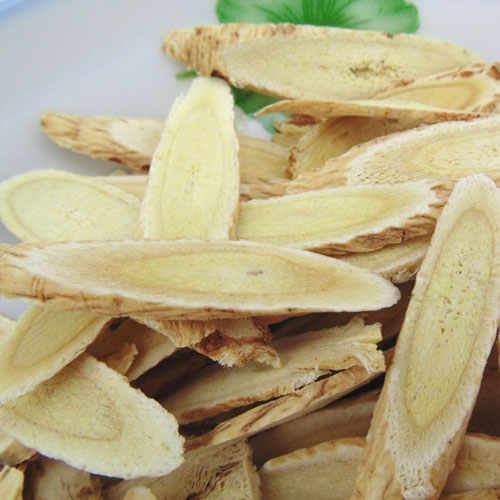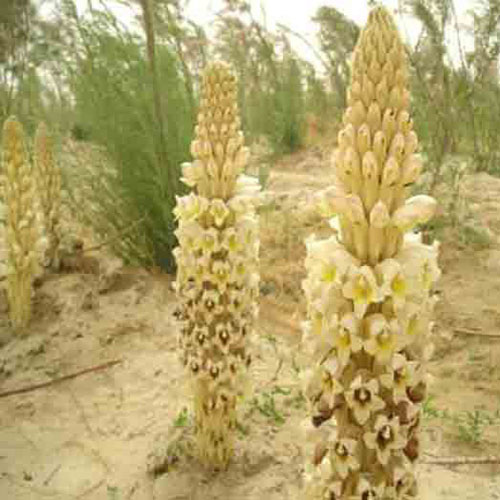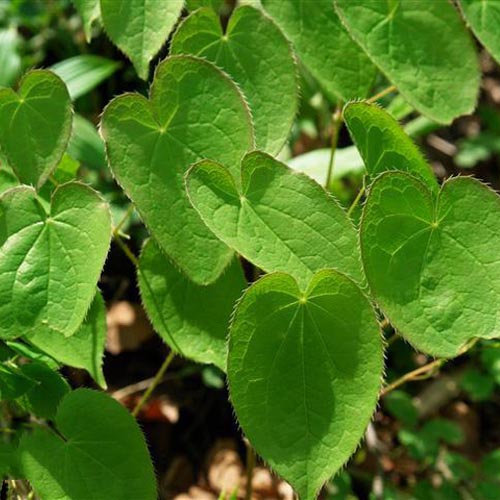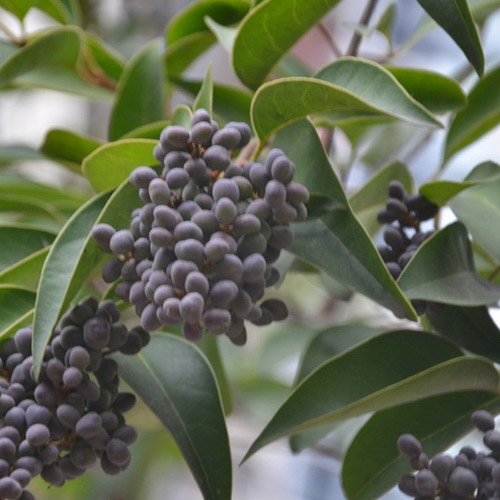- Chinese Name Huang Qi 黄芪
- Latin Name Astragalus membranaceus
- Other Names Huang Chi, Milk Vetch, Radix Astragali Membranacei, Astragalus propinquus, Astragalus mongholicus
- Used Part Root
- Specification Powdered Extract
Astragalus Root Extract Powder
Description
What is Astragalus Membranaceus Extract Powder?
Astragalus membranaceus, as one of the important “Qi tonifying” adaptogenic herbs in Trational Chinese Medicine(TCM), has been used in China for thousand years. Astragalus Membranaceus is a perennial member of the flowering legume (pea) family. It is indigenous to the northern and eastern parts of China and Mongolia where the astragalus root has been used for several thousand years in a variety of herbal mixtures to treat everything from diseases of the heart, liver and kidneys, to viral infections, cancer and immune disorders. Chinese Medicine considers astragalus herb to be one of the most important herbal tonics and as such it is valued for its ability to strengthen the primary energy of the body which we know as the immune system, as well as the metabolic, respiratory and eliminative functions. This fact is being increasingly substantiated by western research.
Astragalus first appeared in the west in the1800’s, used by herbalists as a tonic and an ingredient in many herbal remedies. But it wasn’t until the 1970’s when research began to confirm it’s abilities to stimulate the immune system and fight viruses and bacteria, subdue inflammation and protect the liver that it was brought it into popular use in the alternative medicine markets. There is evidence that this herb has far-reaching effects on the over all functioning and balance of the body, normalizing body functions and regenerating tissues.
Chemical constituents of Astragalus Membranaceus Extract:
The main constituents of Astragalus membranaceus include polysaccharides, saponins, flavonoids, amino acids, and trace elements.
Polysaccharides:The polysaccharides found in Astragalus have received a great deal of attention, especially the polysaccharide fraction F3. They have been shown to play a role in immunomodulatory action. polysaccharides A, B, and C have been indentified as glucans, and polysaccharide D as a heteropolysaccharide.
Triterpenoid Saponins (Astragalosides):Astragalus root contains a series of cycloartane triterpene glycosides denoted astragalosides I-VII (saponins), that are based on the aglycone cycloastragenol and contain from one to three sugars attached at the 3-, 6-, and 25-positions.5-8 In the predominant astragalosides I-III, the 3-glucose is acetylated. Several saponins have also been reported that are based on the oleanene skeleton.
Flavonoids:Using high performance liquid chromatography-electrospray ionization mass spectrometry to analyze the flavonoids in the roots of Astragalus membranaceus and Astragalus mongholicus, eight flavonoids were identified,including calycosin-7-O-beta-D-glucoside, calycosin-7-O-beta-D-glucoside-6′-O-malonate(2), ononin, (6aR,11aR)-3-hydroxy-9,10-dimethoxypterocarpan-3-O-beta-D-glucoside,calycosin,(3R)-7,2′-dihydroxy-3′,4′-dimethoxyisoflavan-7-O-beta-D-glucoside, formononetin-7-O-beta-D-glucoside-6′-O-malonate, and formononetin.
Other Constituents:Phytosterols, a volatile oil, and amino acids, including gamma-aminobutyric acid(GABA) and L-canavanine, have been isolated from the root.11 Zinc, iron, copper, magnesium, manganese, calcium, potassium, sodium, cobalt, rubidium, molybdenum, chromium, vanadium, tin, and silver have also been found in the root of Astragalus, as well as traces of tantalum, hafnium, europium, and thorium. Organic compounds identified in the roots include choline, betaine, gluconic acid, and β-sitosterols, as well as aromatic compounds, essential oil, linoleic acid, α-aminobutyric acid, bitter compounds, and asparagine.
How Astragalus Membranaceus Extract Works (Action Mechanism)?
Research shows Astragalus root stimulates the immune system in many ways. It increases the number of stem cells in bone marrow and lymph tissue and encourages their development into active immune cells. It appears to help trigger immune cells from a “resting” state into heightened activity. One study showed Astragalus root helps promote and maintain respiratory health. It also enhances the body’s production of immunoglobulin and stimulates macrophages. Astragalus can help activate T-cells and natural killer (NK) cells.
Several studies also show Astragalus proffers heart-protecting effects, including protection against oxidative damage. Additionally, the flavonoids, saponins, and polysaccharides found in Astragalus root help minimize free radical damage to membranes.
The flavonoids and saponins in Astragalus can significantly inhibit membrane lipid peroxidation generated by superoxide (O2-), hydrogen peroxide (H2O2), and ultraviolet rays, whilethe polysaccharides of Astragalus possess weaker protective activity.
Astragalus has been shown to have inhibitory effects on lipid peroxidation and protein oxidative modification by copper. The results of a study showed the free radical scavenging effects were similar to, and stronger than, those of mannitol and superoxide dismutase, respectively, demonstrating inhibitory effects on oxidative stress induced by copper.
Benefits of Taking Astragalus Membranceus Supplement:
Strengthen Immune System: Astragalus’s primary function is as an immune stimulator supporting and enhancing the body’s own defense system while controlling autoimmune issues. Astragalus stimulates the production of T cell, Natural Killer (NK) cell, macrophages, immunoglobulin, interferon all important function that the body uses to fight viruses.
Colds and Flu: It is also effective against bacteria and viruses and is therefore helpful in treating flu’s, colds, and various infections. Astragalus is most effective when taken at the first signs of a cold or flu.
Antioxidant: Astragalus is a strong anti-oxidant, many more times more potent than even vitamin E. This is provided principally by its flavonoids and saponins and to a lesser extent its polysaccharides compounds.
Cardiovascular Support: An 82.6% EKG improvement was reported in a sturdy of 92 patients with ischemic heart disease.
Extreme fatigue, especially due to chemotherapy: studies have shown that Astragalus is helpful in reinvigorating the strength of cancer patients and possibly even help in their recovery. Instrumental to this function is its involvement in protecting white blood cells from destruction radiation.
Anemia: Research has shown Astragalus to have significant blood-building capabilities.
Are There any Side Effects with Astragalus?
Astragalus has no know side effects and is considered safe even for long-term use, however if you are pregnant or breastfeeding, you should consult with your physician before taking any medication, including herbs.
Doses as high as 100 grams per kg of body weight have been given to mice with no adverse effects.
Dosage of Astragalus Membranceus Extract:
The appropriate dose of astragalus depends on several factors such as the user’s age, health, and several other conditions. There is no recent clinical evidence to guide dosage of astragalus products; however, typical recommendations are 2 to 6 gram daily of the powdered root.
TCM Tradition
Taste & Property Sweet, Slightly Warm
Organ Meridians Lung, Spleen
TCM Functions
Tonify Qi and Blood Treats the symptoms of Spleen deficiency; pale face, fatigue, tired extremities, diarrhea, Spleen not containing blood, easily bruise or bleed, severe blood loss, hematemesis, hematochezia, uterine bleeding. Treats postpartum fever due to Qi and blood deficiency. Also for LU and SP Xu cough, wheezing, shortness of breath, profuse white and water sputum. Used to Tonify Qi and Blood deficiencies with signs of dizziness, sallow face, vertigo, low energy, no desire to speak, spontaneous sweating, palpitations, insomnia, low grade fever
Raise Yang
Organ prolapse, rectal and uterine prolapse
Tonify Wei Qi and Stabilize Exterior
Treats spontaneous sweating, frequent colds, shortness of breath. Qi, yin or Yang Deficiency type sweating
Promotes Urination and Reduces Edema
Superficial edema, facial edema, heaviness in body, decrease urination
Expels Pus, Generates Flesh
Chronic ulcers and sores that have trouble forming or pus or don’t drain well.
Wasting and Thirsting (Xiao Ke)
Thirst and fatigue
Numbness, Pain, or Paralysis
Numb muscles, pain or paralysis due to the insufficient nourishment and/or circulation of Qi and blood


.jpg)


